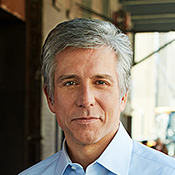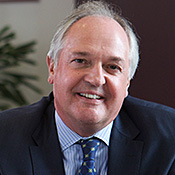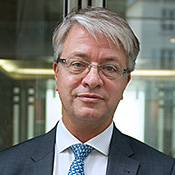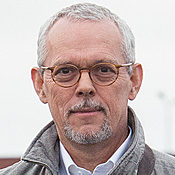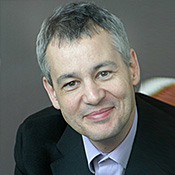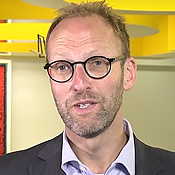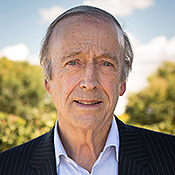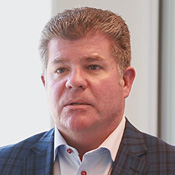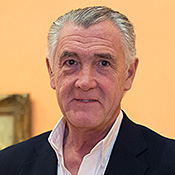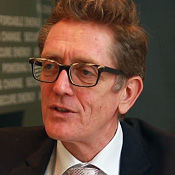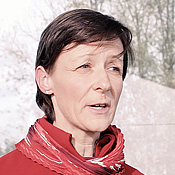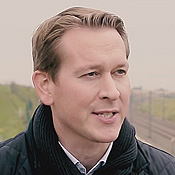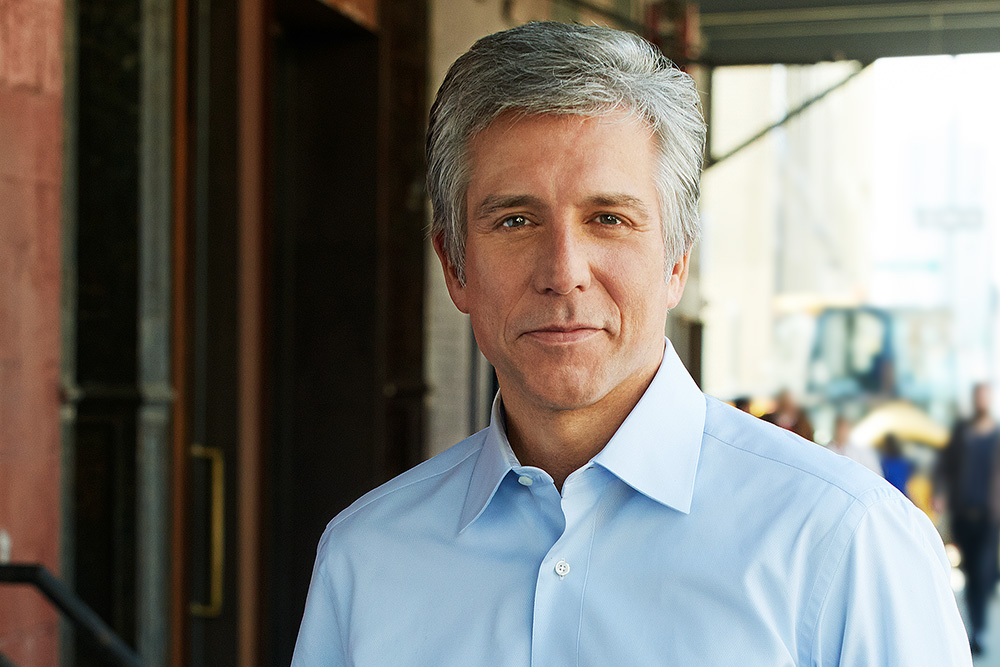
© SAP
Bill McDermott makes sustainability a priority at SAP. As CEO, he has increased SAP’s use of renewable energy from 43% in 2013 to 100% in 2014 by purchasing Renewable Energy Certificates (RECs), mostly from wind energy.
By implementing their “green cloud,” SAP has found a way to power all their data centers and facilities through purchased renewable energy while also minimising the carbon footprint from their company and their customers.
McDermott believes that climate change, on top of being an economic and social risk, also threatens business through price instability and potential raw material shortages. To combat the damages caused by climate change, SAP has created a goal to reduce their greenhouse gas emissions back to the levels of 2000 by 2020.
Q: As an original signatory of the UN Global Compact and other initiatives like RE100, SAP has proven to be a frontrunner of businesses speaking out on climate change. Why is the climate important for SAP?
Everything we do is guided by our vision to help the world run better and improve peoples’ lives. This is our enduring purpose. We strive to enable our customers to create positive economic, environmental, and social impact on the world. Sustainable practices are embedded in everything we do – from running our data centers to reporting our results to stakeholders.
For example, one goal in our holistic sustainability strategy is to reduce our greenhouse gas emissions from our operations back to the levels of the year 2000 by 2020.
We’ve chosen this approach because climate change presents a threat in multiple areas – from increased flooding and storm damage to changes in crop yields and impacts to public health. It also places a strain on global energy systems. At SAP, we believe we have an opportunity to help mitigate these risks through our solutions, as well as by acting as a role model for sustainable business.
I think our biggest environmental impact comes from enabling our customers to increase their overall resource productivity and helping them to transform their businesses to reduce carbon outputs.
Finally, we focus on sustainable business practices because it’s important to our employees. Our most recent employee survey showed that 91% of respondents want their company to seriously pursue sustainability. Participating in the RE100 initiative supports that goal.
Q: SAP has invested in renewable electricity certificates (RECs) to lessen its environmental impact and aims to shift to 100% renewable energy. What is the impact and benefit of this investment on your business? Is wind energy part of your renewable strategy?
Our investment in renewable energy plays a critical role in reducing our environmental impact. We believe it helps us better serve our customers while supporting a more sustainable energy market.
SAP is committed to buying from renewable sources, and we mainly focus on wind energy. Our shift to 100% renewable energy in all of our data centers and facilities in 2014 is one of our most significant actions to date to make our operations more sustainable.
Q: Everybody knows SAP as a pioneer in enterprise software solutions. Lesser known is your vital role in green growth. How does your software help wind energy analysts and utility companies?
With a longstanding focus on the utilities industry, we serve the needs of companies in the generation, transmission and distribution, retail and services, water, and waste and recycling.
Two great examples of this are our smart meter infrastructure and our in-memory technology. Our smart meter infrastructure enables utilities to closely engage with their customers for conscious energy usage. SAP’s in-memory technology helps quickly analyze large data sets like weather data, which gives energy analysts a powerful tool to help match energy demand by integrating, simulating, and forecasting renewable energy supply.
Q: As you may know, wind energy is one of the fastest growing industrial segments in the world and by 2030 it will cover almost 25% of Europe’s electricity demand. Within this context, what opportunities does SAP see in the wind energy sector now and in the future?
I believe there are great opportunities ahead in this sector. In 2014, renewable energy accounted for 100% of our total electricity, compared with 43% in 2013. We achieved this through the purchase of renewable electricity certificates (RECs), mostly from wind energy. We aligned with two NGOs to set the right criteria and establish high-quality standards. As a result, we purchase RECs that both add value and drive change in the electricity market.
Q: Are we at the beginning of a green technology revolution?
There is no question that innovation is driving disruptive changes across the global economy. Green technology is one such pervasive force. In many cases, the technology has matured to the point that it can have a significant impact on things like energy consumption and waste reduction.
By enabling business model transformation, using advances like smart grids and Internet of Things, we can help connected digital business networks reduce overall carbon footprints. In developing markets, exciting advances make it possible to use decentralized and renewable power generation in microgrids that can actually help accelerate economic growth.
For SAP, green technology – especially our data centers – are at the heart of how we provide solutions to our customers. We’ve found that energy consumption in data centers is closely related to innovation and customer adoption of our solutions. Of course, as more of our business moves to the cloud, we see energy consumption go up, so data centers have become a primary focus of our carbon reduction efforts.
The opportunities are there. Businesses just need to embrace them. I’m hopeful we’ll see more and more companies do just that.
Q: What is your message to government leaders attending the COP21 climate change summit in Paris?
My message is to continue focusing on the potential of information and communications technology. Climate change has far-reaching impacts – socially and economically. It is increasingly seen as a business risk that can lead to price volatility and even potential raw material shortages. I believe information and communications technology will play an increasingly important role because it has significant potential to reduce greenhouse gas emissions. Green technology has already enabled positive changes and helped improve the lives of people around the world. In the future, I think this technology has amazing potential to serve as a critical foundation for sustainable economic growth.

